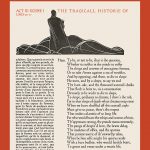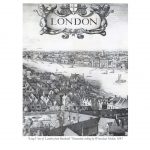The Oxfordian, Vol. 20 is Here!

The 20th issue of The Oxfordian, the Shakespeare Oxford Fellowship’s annual peer-reviewed journal, has been published with six research papers and five book reviews, along with a short note and a feature article. Members of the SOF can access the journal online at https://shakespeareoxfordfellowship.org/ the-oxfordian/. You may purchase a print copy at https://www.amazon.com/dp/1726181545/ for $9.99 plus shipping. This is the first issue of The Oxfordian edited by Gary Goldstein, who previously edited Elizabethan Review and co-edited Brief Chronicles.

The lead paper is by Richard Waugaman, M.D., of Georgetown University.
Waugaman’s philological study of the 1565-67 English translation of Ovid’s Metamorphoses examines the widespread use of “hendiadys” (the expression of a single idea by two words connected by “and”–for example, “sound and fury,” rather than “furious sound”) in both the translation and the Shakespeare plays, providing exact parallels in each. It also reveals unusual spellings in the Ovid translation that also appear in de Vere’s private letters. The paper demonstrates that de Vere was the actual translator of this ancient masterpiece and not his uncle Arthur Golding, a Puritan whose religious beliefs conflicted with the licentious contents of Ovid’s narrative poem. While most of the online articles in Volume 20 are password-protected, Dr. Waugaman’s article is freely available on the website in pdf format.
Other papers in the issue cover a wide spectrum of research topics:
-

Back Cover: Hollar’s etching of London (1647) Researchers Michael Delahoyde and Coleen Moriarty detail the contents of four historical documents that they uncovered about the 17th Earl of Oxford in the archives of northern Italy during the past three years. Their scholarship enhances the biography of de Vere from contemporary sources as filtered through the eyes of European diplomats.
- Gabriel Ready’s paper examines the ramifications of Ben Jonson’s use of a Spanish poetic form known as the decima in his prefatory poem in the First Folio. The form had specific cultural connotations that were suited to Jonson’s ambiguous messages in the Folio, for the decima was long used by Spanish poets as a technique to mock its subjects rather than celebrate them.
- The second part of Roger Stritmatter’s paper examines the tradition which continues to misinterpret Ben Jonson’s phrase “small Latin and less Greek” in the latter’s First Folio poem, implying that the Bard had little knowledge of the Greek and Latin languages and literature. Stritmatter reveals its actual meaning to be at odds with centuries of orthodox scholarship, based on Jonson’s employment of poetic structure and covert methods of communication.
- Connie Beane investigates the authorship of an Elizabethan travel pamphlet (Troublesome Travails) by a merchant seaman named Edward Webbe which alludes to the Earl of Oxford in Italy, uncovering its literary sources and allusions. She proposes that we consider a more likely author for this 1590 literary publication, someone who employed a pseudonym to cover his actual identity: Edward de Vere.
- Five letters written by J. Thomas Looney to The Bookman’s Journal in Great Britain in the early 1920s, which center on the literary reception of Shakespeare Identified, were re-discovered by James Warren and are re-published here. The letters, hitherto unknown to scholars, defend the methods which Looney employed in his research and the accuracy of his findings.
- A note by Warren Hope looks at the contemporary connections between Geoffrey Fenton and the 17th Earl of Oxford’s circle in literary, financial and political terms.
- An article by the editor of The Oxfordian celebrates a fine arts production of Hamlet, describing the design achievement of the Cranach Press of Weimar, Germany, which published its edition back in 1930. The article reprints several line illustrations by Edward Gordon Craig from that seminal edition (also featured on the cover).
The books reviewed in the issue are:
- Shakespeare’s Apprenticeship by Ramon Jiménez – reviewed by Professor Felicia Londré
- Shakespeare and Greece, essays edited by Alison Findlay and Vassiliki Markidou – reviewed by Earl Showerman
- My Shakespeare, essays edited by William Leahy – reviewed by Michael Dudley
- Shakespeare Films by Peter Babiak – reviewed by William Boyle
- The Fictional Lives of Shakespeare by Kevin Gilvary – reviewed by Professor Warren Hope
Six hundred libraries worldwide subscribe to The Oxfordian, and its contents are indexed by ProQuest, the World Shakespeare Bibliography, and the Modern Language Association International Bibliography.
The Oxfordian (ISSN 1521-3641) is the peer-reviewed journal of the Shakespeare Oxford Fellowship, a non-profit educational organization that conducts research and publication on the Early Modern period, William Shakespeare and the authorship of Shakespeare’s plays. Founded in 1998, the journal offers research articles, essays and reviews by academicians and independent scholars, published annually each autumn.
[posted September 4, 2018]
Membership dues cover only a fraction of our budget, including all our research, preservation and programming. Please support the SOF by making a gift today!
Blue Boar Tavern: Wassail Q&A
Tuesday Dec. 17, 8pm E / 5pm P
Sign up below for event invites!
